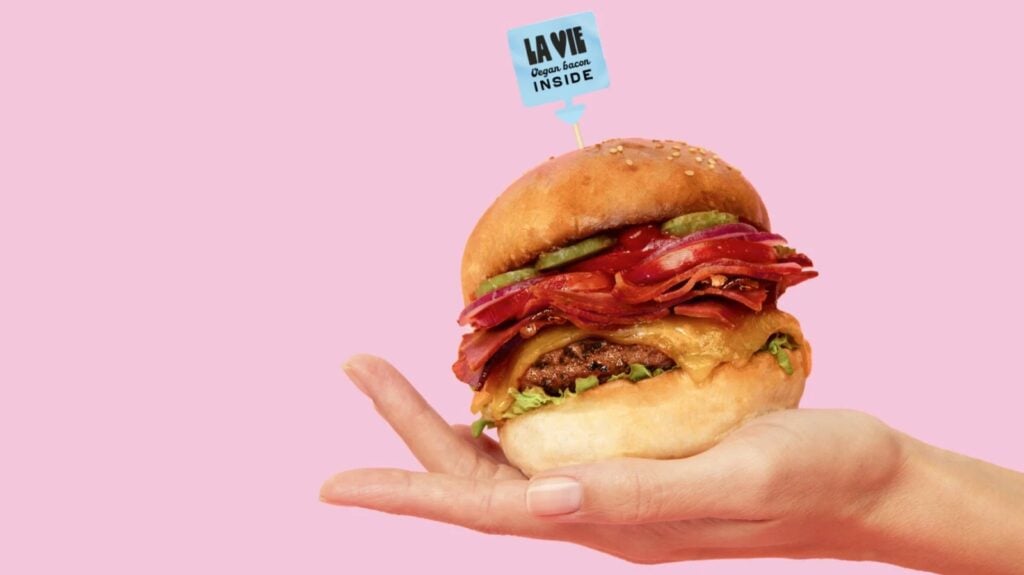France is the latest country to ban the use of meat names on plant-based food products, from October 2022.
The move will supposedly prevent “consumer confusion” as meat analogs become more realistic. Domestic meat industry players and France’s largest farming lobby supported the proposal and now celebrate the ruling.
Meat names facing censorship on plant-based products include “sausage,” “steak,” “bacon,” and “chicken.” “Burger” is exempt as it does not implicitly refer to one type of meat.
France is the first European Union member to impose restrictions of this kind. Only domestically-manufactured products will be subject to the labeling ban. All imports will remain uncensored.
“This law is going completely in the opposite direction of two official priorities of the French government: the fight against global warming and the reindustrialization of France.” Nicholas Schweitzer, CEO of French vegan bacon innovator La Vie told Plant Based News.
“Reducing meat consumption is clearly one of the keys to reducing our carbon footprint. Having alternatives that don’t require any effort for meat consumers to adopt is helping in that regard. On the other hand, the fact that this law is only applicable to companies producing in France is complete nonsense. The only products penalized will be those produced locally.”
Schweitzer noted in a LinkedIn post that the regulation will push companies such as La Vie to relocate to more accommodating countries.
Plant-based labeling bans for all of Europe?
France’s meat, farming, and livestock sectors have been gunning for a plant-based meat names ban for years. In 2020, the French National Assembly approved the law to prohibit plant-based meat products using traditionally animal-based terms. This paved the way for the upcoming blanket ban.
In 2020, EU lawmakers rejected labeling ban proposals. 379 MEPs voted against the “veggie burger ban” and dismissed the notion of easily misled consumers. At the same time, laws surrounding alternative dairy labeling became inexplicably tightened. Indirect terms including “like milk,” “cheese alternative,” and “yogurt-style” became outlawed.
Disappointed that imports are excluded from France’s new ban, the FNSEA, France’s largest farm lobby is seeking consolation. It has joined French meat and livestock representatives in calling for further regulation and for the “meaty” lexicon ban to be extended throughout Europe.
Is Big Meat running scared?
Often, motivation for labeling bans is shrouded in concern for consumers’ abilities to understand the products they are buying and “cultural hijacking.” The latter has seen meat companies growing increasingly possessive over terminology they deem exclusive to animal-based products.
Shortly before France announced its anti-plant-based meat names stance, South Africa implemented an immediate ban on all “meaty” terminology. The primary reason is consumer confusion through “misleading” marketing. However, the plant-based sector is fighting back.
Food manufacturers state that the removal of identifiable terms will only create more confusion. Plus, it also flies in the face of climate action, by making sustainable meat alternatives harder to confidently source.






